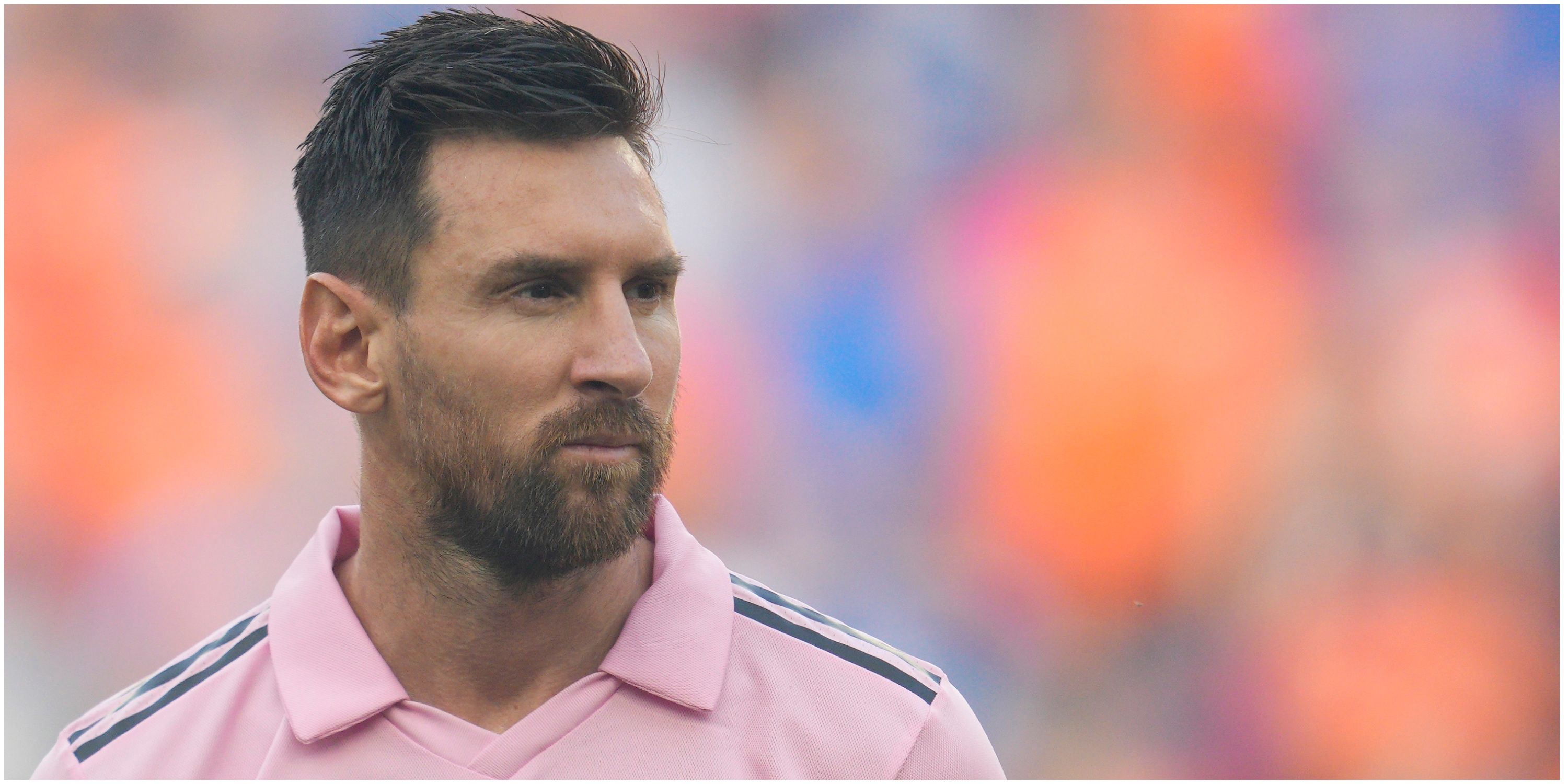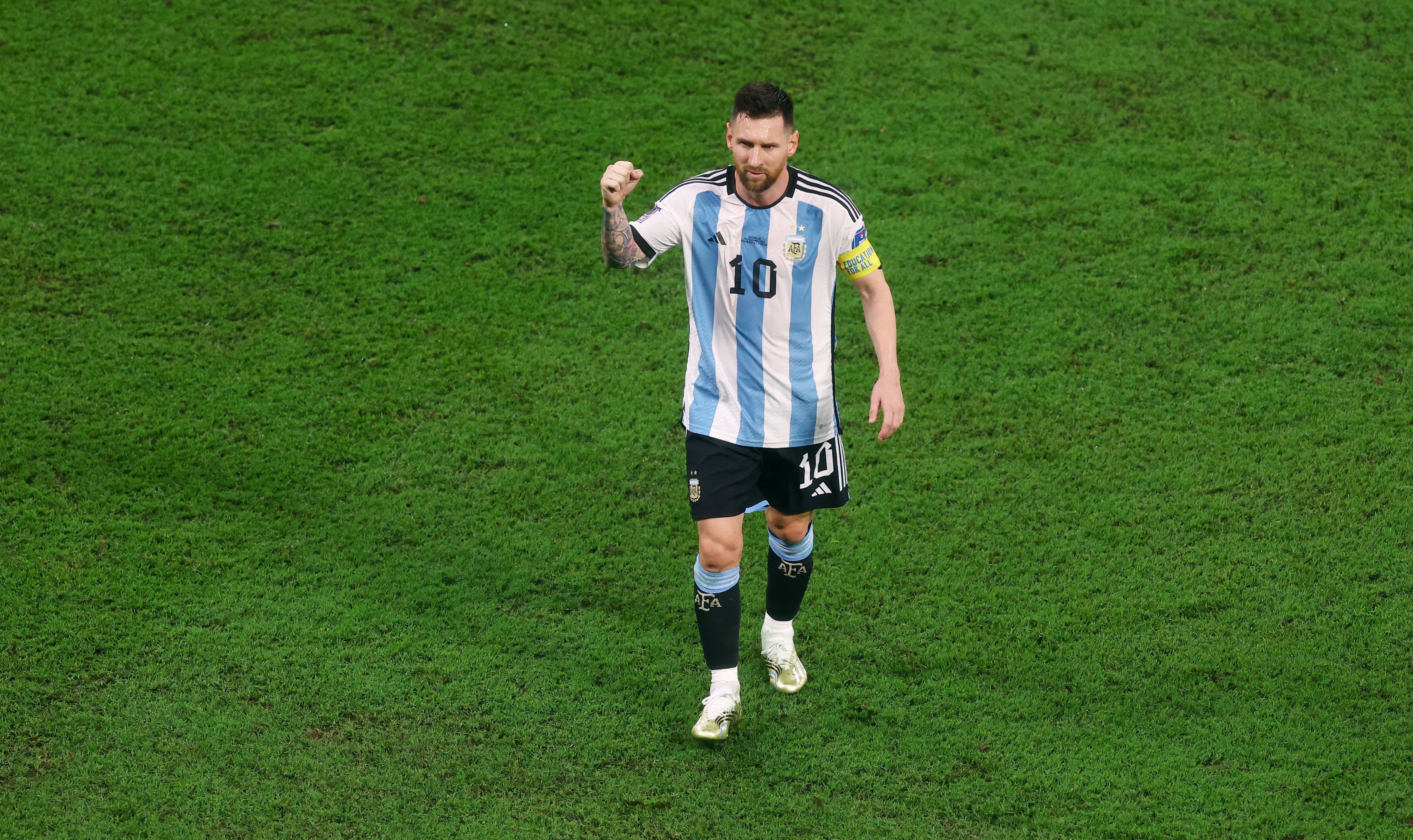Highlights
- Lionel Messi's tendency to walk during matches is not due to laziness, but rather a strategic move to stay ahead of his opponents and conserve his energy.
- Messi's football intelligence and ability to anticipate the game allows him to find weaknesses in the opposition's defense and make impactful plays when the moment is right.
- Despite entering the final phase of his career, Messi's walking during matches is likely to continue as he continues to rely on his exceptional skills and football IQ to excel on the pitch.
Lionel Messi has entered the final part of his illustrious career, so it’s only natural that he doesn’t charge around the pitch like players 10 or 15 years his junior might. However, throughout the legendary Argentine forward’s time in football, many fans have asked the same question: “Why does Messi walk so much during matches?”
We regularly saw him stroll about during his glittering 17-year spell as a first-team player at Barcelona - particularly towards the end of his time at Camp Nou. He then seemed to walk even more frequently during his difficult two-year spell as a Paris Saint-Germain player. And although he loves representing Argentina, we’ve also seen him walking about - almost half-heartedly at times - during plenty of international games over the years.
Even at the 2022 World Cup in Qatar - the tournament that Messi will forever be synonymous with after inspiring La Albiceleste to glory - he often raised eyebrows for the sheer amount of time he’d spend walking in each game. Following the group stages, BBC Sport revealed that Messi appeared in the top 10 on three occasions when it came to players who covered the most distance while walking.
Messi's walking stats in 2022 World Cup group stages
Only Poland striker Robert Lewandowski covered more distance at walking pace (5202m) during a group stage game at the previous World Cup finals. Messi was the only player to feature more than twice in the top 10.
“He's almost pretending that he's not interested then he comes alive,” former Manchester United and England defender Rio Ferdinand said at the time. ”What he can do is open up the game from any position on the park and that's the difference between him and all the others.”
Throughout the remainder of the tournament, Messi continued to conserve his energy for the moments it truly mattered. He produced numerous moments of breathtaking individual brilliance during the knockout stages en route to lifting football’s most prestigious trophy following arguably the greatest World Cup final of all time against France.
Firmly on course to win a record-breaking eighth Ballon d’Or award following his heroics in Qatar, Messi made the decision to leave Europe for America in the summer, agreeing a lucrative two-and-a-half-year contract with David Beckham’s Inter Miami.
In his first eight games for the Major League Soccer outfit, Messi had scored 10 goals and provided a further three assists. More importantly, he’d helped the club win a first ever trophy in the form of the Leagues Cup and dragged the team to the final of the US Open Cup.
Messi scored a wonderful goal in the Leagues Cup final against Nashville SC, curling an unstoppable strike past goalkeeper Elliot Panicco from the edge of the box. Days later, footage recorded from the stands showing Messi walking around for over a minute went viral on social media.
Seemingly out of the game, Messi eventually sensed that something was about to happen and darted towards goal from the right wing. He demanded the ball, then took a couple of typically brilliant touches before finding the back of the net. Watch the video in all its glory below:
Pep Guardiola explains why Messi walks during matches
One man who knows exactly why Messi walks so much during matches is Pep Guardiola, the South American's former manager at Barcelona and arguably the best coach in the world. Commenting while watching a video of Messi as part of the 'This is Football' series on Amazon Prime Video, the revered Catalan coach said: "He's watching now, he's walking.
"He's walking... That's what I like the most. He is not out of the game, he's involved. He's moving his head: right, left, left, right. He knows exactly what is going to happen. But his head is always like this [Guardiola turns his head left and right]. He's always moving.
"He's not running, but he's always watching what's happening. He smells where are the weak points in the back four. After five, ten minutes, he has the map in his eyes, in his brain to know exactly where is the space and what is the panorama. It's like being in the jungle and I have to survive. And he knows if I move here, here, I will have more space to attack."
So, there you have it. Messi doesn't walk around the pitch because he's lazy or not physically up to the challenge of running more. He does it in order to be several steps ahead of his opponents. Then - and only then - when the moment is right: bang.
Speaking during the 2018 World Cup, football pundit Ken Early stated, per the Daily Mail: “Messi has figured out how to win matches by moving less than everyone else.” While Luke Born, a data scientist at Barcelona, said during a sports analytics conference: “Can we say Messi gets a lot of his space by not chasing the play? Yes, that’s precisely what our research shows.”
Fans may enjoy seeing players charge around at 100 miles per hour, but Messi is proof that it can pay dividends to at least appear on the fringes of the game. The difference between Messi and other players who drift in and out of matches, though, is that the World Cup winner is steps ahead of most opponents in his head.
His football intelligence - or football IQ, if you will - is on another level to most professionals, and that’s one of the main reasons he’s been able to scale such lofty heights over the past two decades. Now in his mid-30s it’s safe to assume that the time Messi spends walking during matches will only increase between now and the day he retires.
Despite that, Messi will continue to be the first name on the teamsheet for both Inter Miami and Argentina because of the otherworldly quality he possesses. He’ll be 39 years old when the next World Cup finals come around - hosted by Canada, Mexico, and the United States - but you certainly wouldn’t bet against him making the tournament to help defend Argentina’s crown.


